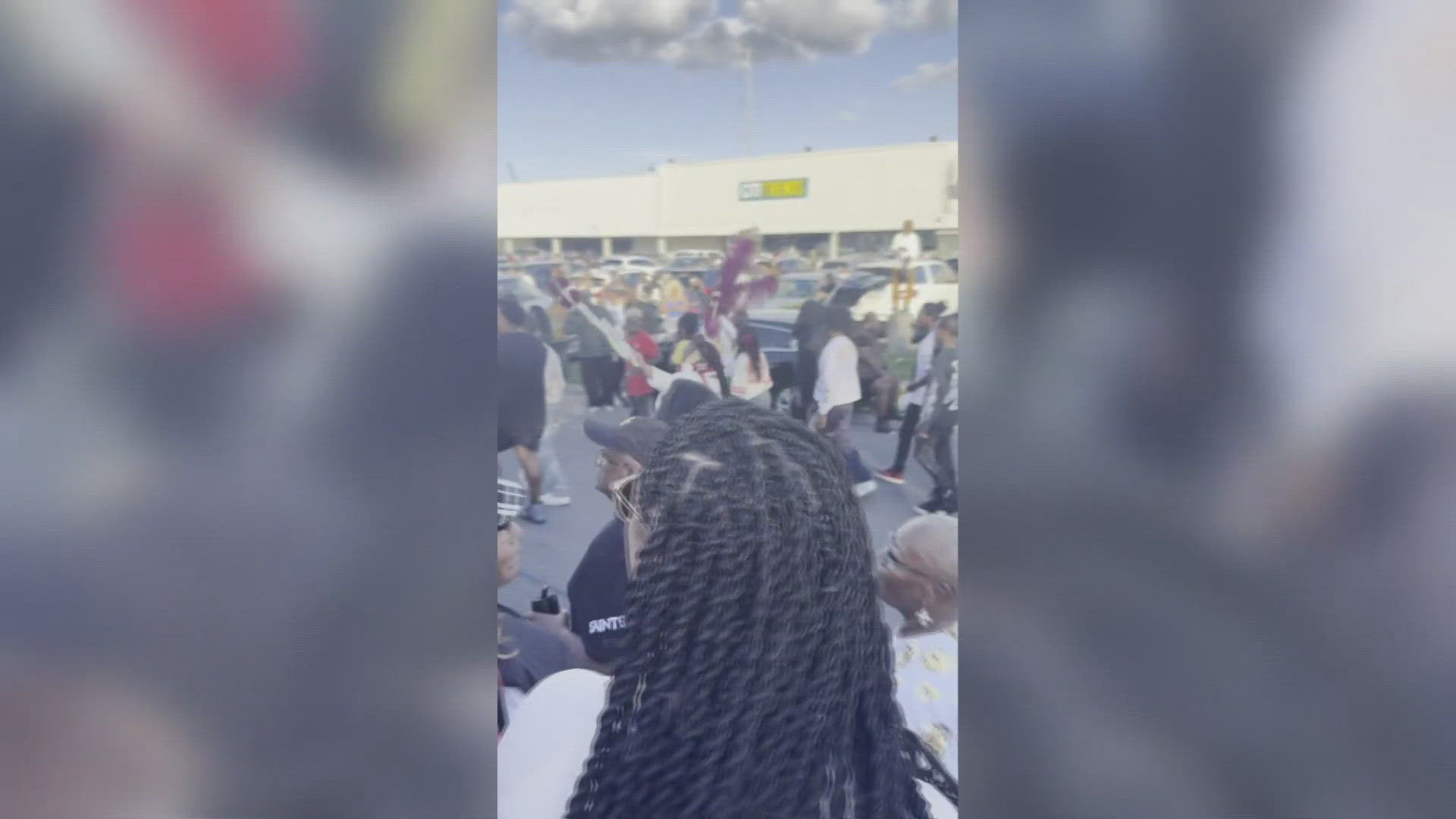LAKE CHARLES, La. — It took a teacher’s encouragement to get Charles Robinson back in school. The Calcasieu Parish assistant district attorney has prosecuted thousands of felonies and held many jury trials — including several homicide cases and one capital case, State v. Kevin Daigle, his first trial there after transferring from the New Orleans DA’s office. That is quite an achievement for anyone, but especially a high school dropout.
Incidentally, it was also a teacher’s words that resulted in Robinson quitting school.
“Once I was more a knucklehead than I currently am,” the tall, lanky 32-year-old said with his toothy grin.
Robinson grew up in Slidell, and his family made a move to Poplarville, Mississippi, after Hurricanes Katrina and Rita transformed it from a sleepy little town to something busier than his mother and stepfather wanted to call home.
“I was about to get kicked out of school anyway, and it was better for me to have a fresh start,” he admitted. “The first three years of high school I had been suspended a lot.”
He failed more than one class. For his algebra final, he wrote the lyrics to the Beach Boys’ “Wouldn’t it Be Nice.”
“The teacher busted out laughing when she began grading the test, and I was the only one that knew why,” he recalled. “She didn’t think it was funny enough to pass me. I thought I was much funnier than I actually was. I thought I was hilarious.”
Matters didn’t improve after his enrollment at Pearl River Central, a high school with around 200 people.
“The first semester was fine,” he said. “I didn’t know anyone and stayed busy. But once football season ended, that’s when the knucklehead-ism ramped up.”
New friends egged him on. One semester he had 56 morning detentions and was on a first-name basis with the Saturday detention lady. He admitted he enjoyed the attention. He drove a convertible with a loud horn. His CB radio was hooked to a public address system.
On career day Robinson’s homeroom teacher handed the class three sheets filled with career guidance. Robinson was 17 and classified as a junior.
“She told us to circle the career path we wanted to pursue and we would be put in certain courses for that,” he said. “It was supposed to help us figure out what to major in.”
The assignment needed to be completed in five minutes. Robinson suggested that wasn’t much time to figure out how a person would spend the rest of his life. She responded by announcing to the class to circle a career path — or be a loser like Robinson.
“That was my last day of school,” he said.
With a lot of extra time on his hand, he picked up a guitar. His grandfather, Buddy Mitchell, taught him to play his first song, Johnny Cash’s “Folsom Prison Blues.”
His mother was “very vocal” about his need to be in school and to have a plan for his life.
“I’m not trying to sound like Merle Haggard,” he said, “but Mama tried, you know. She begged me to act right but she never gave up on me. I talk to her every morning on my way to work.”
He describes both his parents as loving and his dad as more subtle about dealing with Robinson’s behavior.
When Robinson found out the nearby community college offered a music scholarship he got his GED, qualified for a scholarship — the only way he could attend — and enrolled. When it came time to register for another semester he had second thoughts. The day before classes were to begin, he got a call from the music teacher. She asked him why he wasn’t signed up for her classes. LaDonna Tyson, director of choral activities, told Robinson she would see him in class the next day and she wouldn’t take no for an answer.
“She encouraged me and gave me leadership responsibilities,” Robinson said. “I call her every year to remind her that I’d probably be dead in a ditch somewhere if it weren’t for her.”
Robinson was a member of Concert Singers Choir, River Road Show Choir — dancing wasn’t his forte but they needed guys — and The Voices acapella group while studying at Pearl River Community College from 2007-2010. In 2019, he made the Fine Arts and Communication Hall of Fame.
He’s performed in bars, had a stint as a dueling pianist and sang Hank Williams Jr.’s “Family Tradition” with then-District Attorney John DeRosier at the office Christmas party along with ADA Ross Murray. He chose an in-state university the furthest distance from home — the University of Mississippi — to earn his Bachelor of Arts degree in journalism, graduating cum laude and working as staff writer for the Daily Mississippian newspaper, where he was assigned to the civil rights beat.
“One of the most interesting parts of being at Ole Miss wasn’t really what you learned in the classroom, but what happened on that campus in the ’60s. I learned a lot as a person when I learned the cultural history of The South,” he said.
In no time, he was disillusioned with law school.
“They pounded it in our heads to be prepared to be a small town lawyer,” he said.
Robinson didn’t want to handle estates and divorces, defend criminals or litigate banana peel slips. He was after making a difference, and if he couldn’t get that with his law degree, well, he had dropped out before. He was ready to do it again. This time he would do something that mattered, become a member of the Air Force Special Warfare, Para-rescue, specialists who parachute, scuba dive, climb mountains and even train in The Arctic in preparation for rescuing and treating downed military personnel. (He had gone so far as to find out he met the demanding physical requirements. Hale is Robinson’s middle name. It fits his state of health and vigor.)
“In my second year of law school a federal prosecutor talked to us, and he opened his speech with, ‘I get to go to work every day and do the right thing.’ That got my attention,” Robinson said. “I wanted to work where the stakes are a little higher, where I could see I was helping make people feel safe, and there was no danger of jeopardizing my integrity,” he said.
The high school drop out, guitar-playing country music singer with the journalism degree who sang the Anthem at his law school graduation in front of 2,000 people did not grow up hobnobbing with doctors and lawyers or “big wigs,” he said. He’s one of the only people in his family and extended family to attend college. Since coming to Southwest Louisiana, he’s met and married his dream girl, Bethany Cahill, and now he’s living with purpose, doing what he considers a dream job, bringing justice to the families of murder victims.



